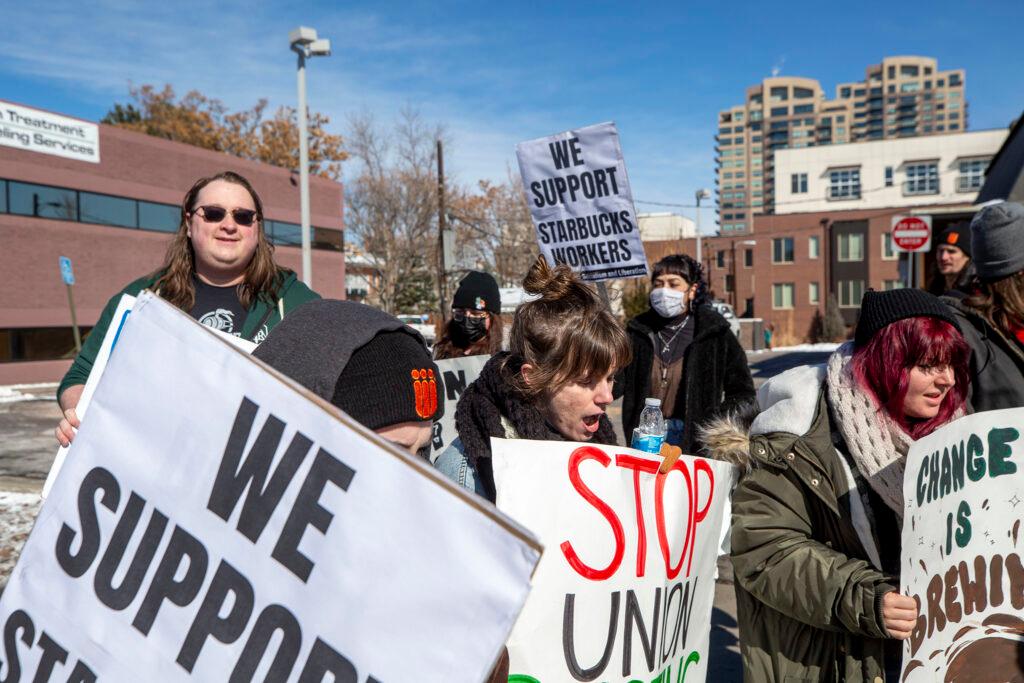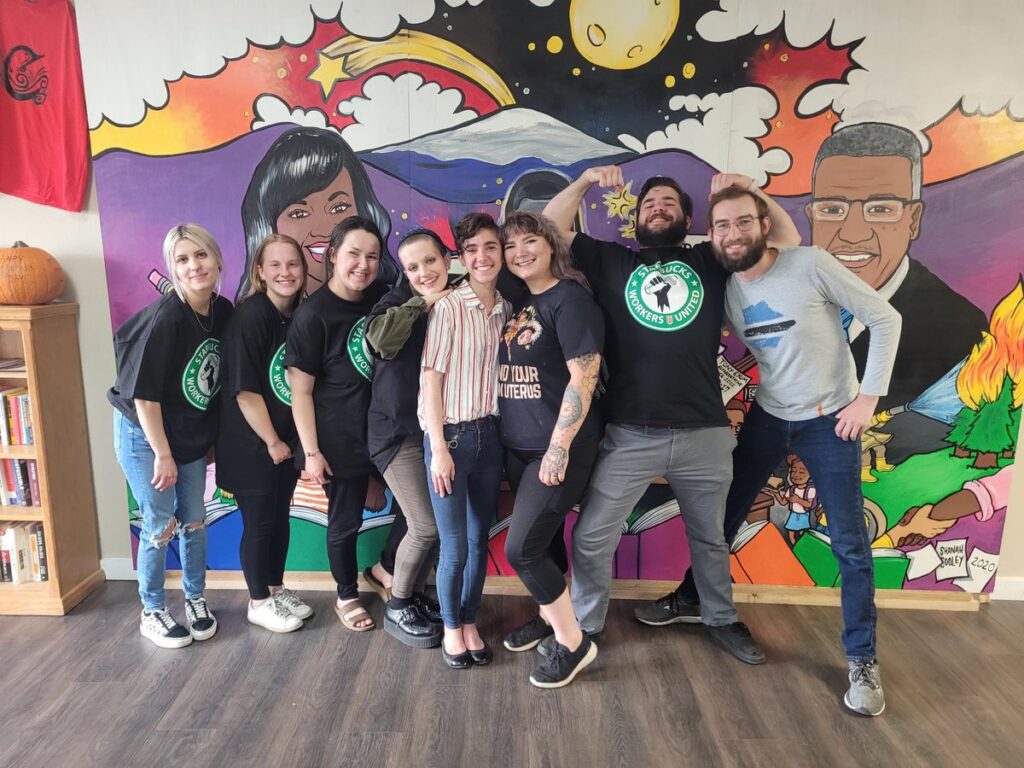
Baristas at three more Denver and Colorado Springs-area Starbucks coffee shops have voted to unionize, bringing the total number of organized locations to five out of several hundred statewide.
The results, announced Thursday by the National Labor Relations Board, were the latest development in one of the largest pushes among organized labor against a major U.S. corporation in recent history. Last month, baristas in Superior became the first Colorado store to take the step, followed by another Denver store on East Colfax.
The Colorado workers join a growing number of baristas nationally seeking entry into the massive Service Employees International Union. Employees at hundreds of stores in at least 25 states have filed to hold union elections since a Buffalo, New York store became the first to make the move last December.
Those in Colorado stores say they want to push for tighter security, higher pay and other workplace changes as they move ahead to collective bargaining.
“It's very relieving,” said Ryan Dinaro, a shift supervisor and union organizer at a Starbucks along the 16th Street Mall in Denver. “We’re living in a time where service work and housing prices don't mix, especially in Colorado, and we have avenues to respond to that now.”
Mark Nelson, labor attorney."I’ve been doing this for 40 years and this is unlike anything I’ve seen in my career."
A fourth store in Colorado Springs, located at the intersection of Academy Blvd. and Flintridge Dr., also received election results on Thursday, with workers deadlocked 10-10 on unionizing. Starbucks challenged the validity of 2 workers’ ballots, and the NLRB will now review those before determining an outcome.
Workers at one other Starbucks location near Garden of the Gods in the Springs are still voting, with results expected in early June.
“We’re really energized by the wins and perseverance by the workers,” said Esau Chavez, a union organizer with SEIU. “Colorado has been one of the more active states as far as the Starbucks union push goes and we expect to see even more.”
The company did not return a request for comment. In past statements to CPR, it has expressed staunch opposition to organizing efforts. Leadership has also announced new wage hikes and a national listening tour to try to stem the growing number of elections.

“We are better side-by-side,” the company said in a recent letter to staff posted online. “We believe we can build a better experience working together than by sitting across a negotiating table.”
Thursday’s vote counts—13-0, 4-1, 9-1 and 10-10—came amid rising tension between the union and company. Workers in at least two Colorado stores have filed unfair labor practice complaints with the NLRB in recent months due to alleged anti-union meetings being run by management.
Bradley Kurtz, a shift supervisor and union organizer at the Academy and Flintridge shop in Colorado Springs, the undecided store, blamed the large amount of employee opposition on anti-union messaging from management.
“Any partner that is on the fence, they’ll talk to,” Kurtz said. “There are partners who have been sat down multiple times. It’s been an emotional journey for us”
In past statements to CPR, Starbucks has said claims of anti-union activity are “categorically false.”
Union push is ‘unprecedented’
Mark Nelson, a labor attorney at Polsinelli who works on the management-side of labor disputes, said it’s hard to imagine the union push at Starbucks slowing down.
“I’ve been doing this for 40 years and this is unlike anything I’ve seen in my career,” Nelson said. “It’s unprecedented.”
The surge in union interest among Colorado workers goes beyond Starbucks. Driven by a rising cost of living and feelings of discontent with how many customers and companies have treated workers throughout the pandemic, workers this year have almost eclipsed the total number of election petitions filed in 2021.
As of mid-May, 21 petitions to hold union elections had been filed by Colorado workers, according to NLRB data. A total of 29 were filed in all of 2021.
In 2020, just 13 were filed.
“It would not surprise me if we see 40 or more union elections this year in Colorado,” Nelson said. “The pandemic has been such a disruptive force. I think it’s just created anxiety and pushed workers to evaluate their options regularly.”
Colorado workers hope to push for higher wages and more structured staffing levels in their first round of bargaining. One complaint among baristas has been understaffing during busy shifts, said Maci Parker, a shift supervisor at the Brookside Street and Nevada Ave. store in Colorado Springs.
“We need better coverage so we’re not doing two or three jobs at once,” Parker said. “We’re supposed to have, by Starbucks standards, enough people to fill every position on the line there.”
Inflation is also top of mind for many workers. Dinaro, the shift supervisor at the 16th Street Mall store in Denver, said his $22 an hour wage was barely enough to cover his $1,400 a month rent.
“Food costs have gone up. Rent's gone up. It's more expensive than ever to own a vehicle,” Dinaro said. “We have partners facing housing instability and partners who are unable to feed themselves healthfully at all.”
Security has been a big issue too.
“We’ve had several instances where violent people have come into our store,” Dinaro said. “We’ve asked for a security consultant to evaluate the store for ways to increase the safety of the store. But so far we've been kept in the dark on improvements.”
It’s unclear how long bargaining may take. The country’s first stores to unionize in Buffalo have yet to secure an initial contract with the company.
Workers at the Superior store that unionized in April have taken steps to begin bargaining, but are also still in preliminary stages. Dinaro said he expects it could take up to a year to get a contract.
“I'm pretty optimistic that we'll get a lot of what we're asking for,” Dinaro said. “We aren't asking for anything unreasonable, just being paid, what it costs to live here and, uh, safety in the workplace. If Starbucks wants to delay giving us that, really shame on them.”
CPR's Dan Boyce contributed to this report.
Editor's Note: The original version of this story had the wrong first name for Mark Nelson. It has been corrected.









